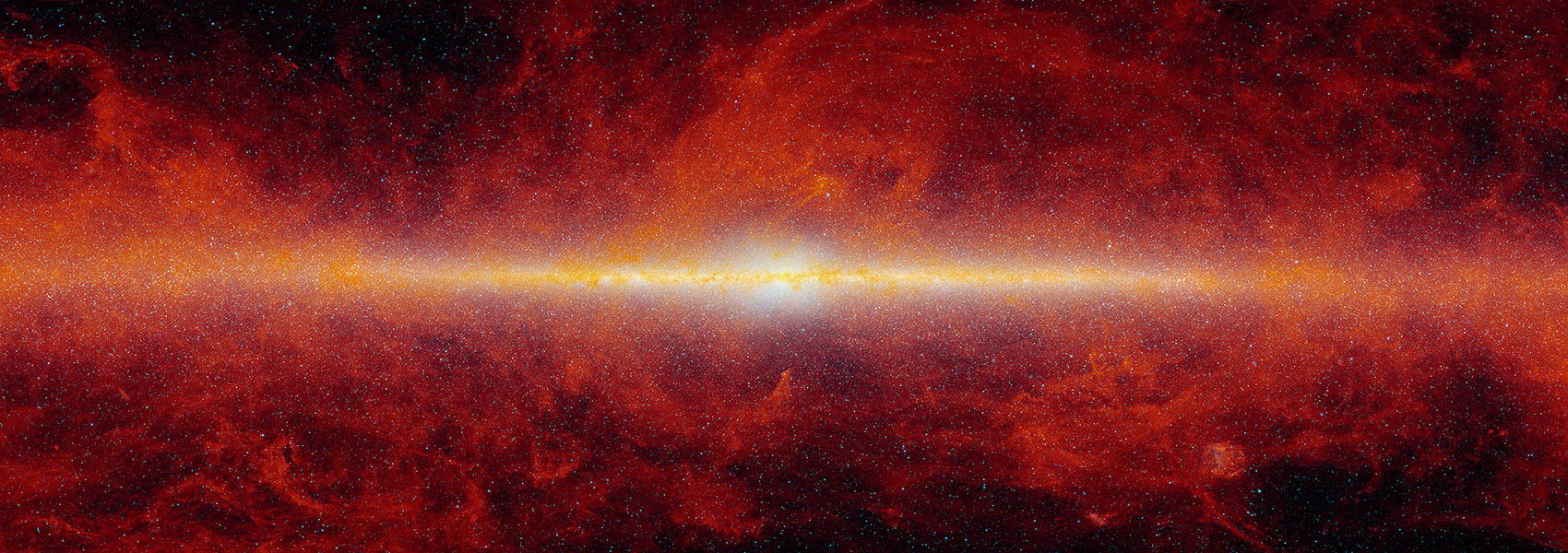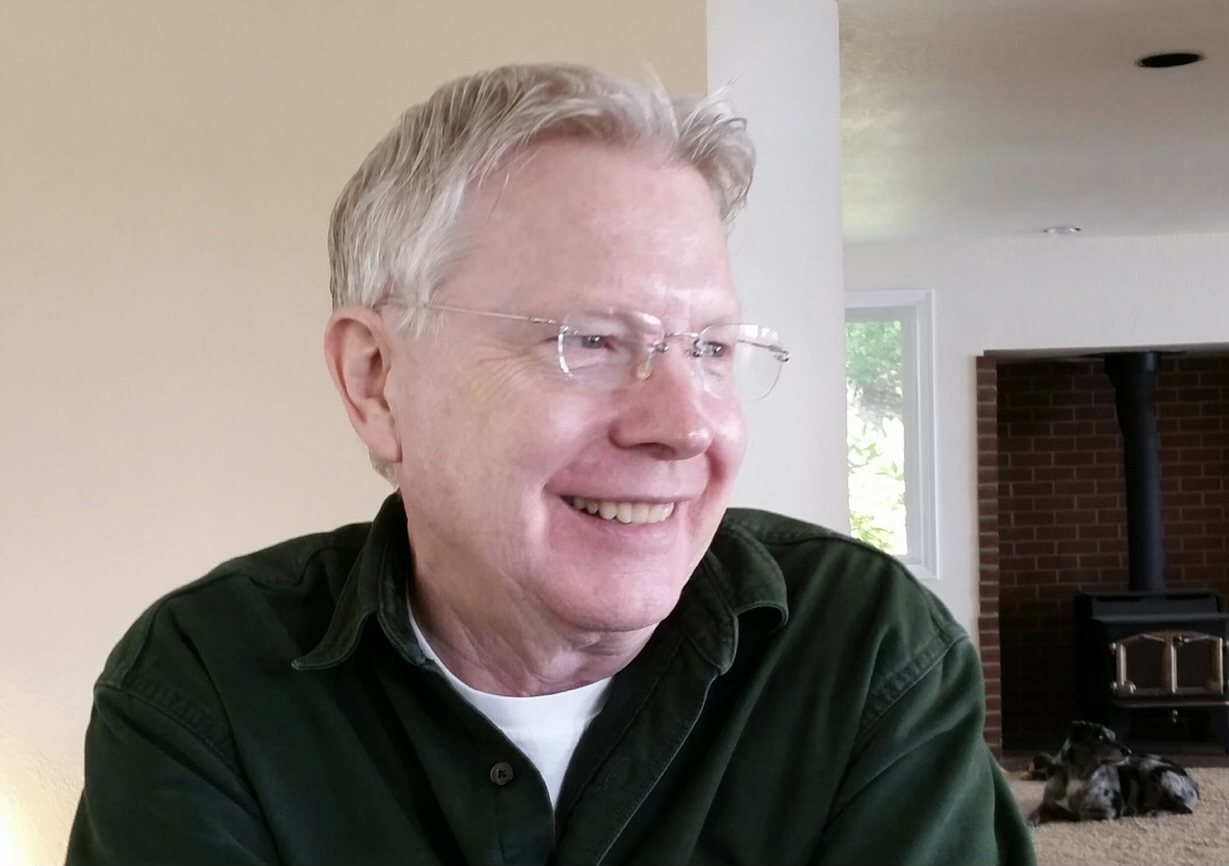
IPAC Legend Jack Lampley Retires

One of the original IPACers, and a beloved “father figure” to all IPACers, Jack Lampley, is stepping off after 41 years at Caltech/IPAC and more than 52 years at Caltech/JPL. We asked Jack to tell us about some of his favorite memories during his working career, spent in its entirety at JPL and IPAC.
Tell us about your jobs prior to coming to IPAC.
My stepfather used to work at JPL as a technical writer. A couple of years after I finished high school, he recommended that I apply for a job opening at JPL. I did not know really anything about computers. Nevertheless, I started working at JPL on January 2nd 1971, as an expediter/runner on graveyard shift in the Univac 1108 computer area on the third floor of building 230 (Space Flight Operations). Programmers submitted jobs via punch cards that I fed into the Univac 1108 card reader and waited while the mainframe calculated the results and printed out the answers on a line printer, sometimes in triplicate. I then decollated them, wrapped about the punch cards, and then delivered these to different buildings all over the Lab. Later I had a job with the Edwards Air Force base test station rocket firing facility that JPL was operating, calculating statistics for them. I also worked on the Seasat project for a few months.
JPL in the 1970s was a great place to work. The atmosphere was always one that encouraged young people with no experience to learn and work up through the ranks. I was lucky enough to move onto the Voyager Project around the time of the close encounter with Saturn. I was a Command Operator — that meant I sent the commands that steered the spacecraft, and I was one of the first humans to see the pictures of the rings of Saturn being returned live. It's funny to think that (former Spitzer Space Telescope Project Manager) Suzy Dodd was working on Voyager at that time and that our paths would lead us both to IPAC. (Editor’s note: Suzy Dodd is currently Project Manager for the Voyager Interstellar Mission.)
"I was a Command Operator—that meant I sent the commands that steered the spacecraft, and I was one of the first humans to see the pictures of the rings of Saturn being returned live."
Overall, the atmosphere at JPL in the 1970s was much more open and freer than now, even wild, almost like a college party atmosphere. We had great Christmas parties. At the same time, though, there was great science being done, and many brilliant scientists were around. JPL had an intellectually stimulating atmosphere. It all combined into one big, collaborative, happy family.
How did you end up moving to IPAC? What was your first job at IPAC? When was that?
I was hired to work on the Infrared Astronomical Satellite (IRAS) project in July 1982, six months before its launch, working on processing the Critical Daily Job (CDJ) that involved processing all the data the telescope was returning. The CDJ was a complicated seven-step program that took hours to run, and I worked, once again, on graveyard shift (11 p.m. to 7 a.m.). I did that for over three years. That was when I first met Dennis Wittman and Ron Beck, who stayed at IPAC until just a few years ago. Since IRAS data was going to be used by astronomers from all over the world, and JPL at that point had a military presence, it was decided to build the IPAC building on the campus at Caltech to provide easy access. Our entire team moved from JPL to offices in the Union Bank building on South Lake Avenue (the building at the southwest corner of Lake and Cordova), and a year or so later (1985) we moved to the newly built IPAC building on South Wilson Avenue.
It was an adventure moving from JPL. We were a small group who enjoyed the work and had a lot of fun in those early years. I worked in the Data Management Team (DMT) that processed all the data and ran a variety of jobs supporting the science staff. For fun, we had an “entertainment group” and we wrote and filmed many skits and videos satirizing the daily workings at IPAC, as well as holiday videos. The people we left behind at JPL were jealous we moved to campus and had athletic facilities to use and a much more relaxed atmosphere than at JPL at the time. They referred to us as working at the “country club.”
Tell us a funny story from your IPAC years.
The videos we filmed were lots of fun. There was an annual "Death March" to the bottom of the Grand Canyon that several people went on every year. We filmed a video called "Money for Nothing" which is a song by Dire Straits that showed all of us goofing off in our offices rather than working. Since some of us were on bowling leagues, we filmed a video in the main IPAC hallway using staff as the bowling pins. They were standing in formation by the door to the large conference room. I used a real bowling ball to roll down the hall and knock them all down.
Tell us more serious (challenging/exciting/interesting/frustrating) stories from your IPAC years.
It was a much different time, e.g., people smoked cigarettes in the building inside their offices. There was no such thing as "political correctness," nor much awareness regarding diversity and inclusion. People experienced behavior that would never be tolerated now. There were also growing pains, as our staff received on-the-job training in supervisory roles. It is really wonderful to see the evolution in these areas.
The most exciting thing was going to the launch of the IRAS satellite at Vandenberg Air Force Base. We all piled in buses and drove up together. After working for years on a mission everyone just holds their breath hoping that the rockets don't explode and that the telescope works once the hatch is opened. One of our staff members was the scientist on a NASA mission called Wide-field Infrared Explorer (WIRE). It launched and malfunctioned right after launch, ruining the mission. It was really depressing for the staff supporting it here at IPAC. Some were let go and the scientist left astronomy.
Working on the Spitzer Project was truly a highlight. I helped configure the flight operation network computers. It was a stressful time during the six months leading up to launch, but, as we all know, the project was a tremendous success. The excitement of watching the launch and then the sadness of witnessing the sending of the last command were both emotional.
Later on, I became the IPAC Facilities Coordinator after Rosanne Scholey left IPAC. I think this is really the best match for me, job-wise that I ever had, and the one I have enjoyed the most, because I got to interact with people, help people move into offices, buy furniture and refresh offices, etc. You never know what you get to do each day. I had a lot of interactions with Caltech facilities people, including plumbers, electricians, carpenters, painters, transportation and security. I established great relationships with all of them, and they got to know me as “IPAC Jack.” Some people know me also by the name “THE LAMP” that is written in my car’s license plate and as “Jack Hammer,” connected to the Morrisroe building conference room unfortunately loud remodeling.
I am really going to miss my interactions with all the facilities people. They really went beyond their duties to help me on some occasions, such as the sudden move of all the IPAC people from the second floor of the Keith Spalding building to the third floor. I moved 32 people in a month and a half, which was unheard of. The head of the PMA division directorate sent me a personal “thank you” email. More specifically, Caltech transportation gave me priority over everything else happening on the campus, and they were working in Keith Spalding, helping with the move, every day. Relationships, when you are the facilities person, are the key to your success. I always did my part to help them to make their jobs as easy as possible.
"Relationships, when you are the facilities person, are the key to your success. I always did my part to help them to make their jobs as easy as possible."
How do you hope people will remember you?
I have always tried to make the world a little bit better of a place after having passed through it. I try to manifest that daily, and in my role as Facilities Coordinator I can look around and see the things I have improved everywhere. I would hope that people will think of me as someone always willing to help make the environment better and happier.
(Jack Lampley was chosen to accept the 2021 NASA Group Achievement Award on behalf of the IPAC Support Group, which was the only IPAC group that had a continuous personal presence in the IPAC buildings during all of the Covid pandemic. Jack Lampley himself heroically put in countless hours.)
What are your plans for the retirement? Are you going to move to another location? Travel plans?
I am going to stay right where I am. I love Pasadena. I live in a beautiful condo one block away, so I will be around, using the gym and visiting IPAC. I will be traveling and enjoying the freedom and down time. I feel so fortunate to have worked at JPL and Caltech since 1971 (my entire working career). I don't know many who have had that great of a working experience.
What do you want to say to all the current IPACers, and people who are hoping to or thinking about working at IPAC someday?
I hope that anyone working at IPAC realizes that no matter what role they have, they are contributing to great science that will be remembered long after we are all gone. It really is a great place to work. I see it slowly returning to a more collaborative environment that was disrupted by Covid. It is a unique place, creating unique science they should all be proud of.
For me personally, I am going out on a high note. I love my job and have the best boss I have ever had in all my years of working. I wish everyone years of success and, if you have half the pleasure I have had, you're lucky.
Thank you, Jack, for all that you have done for IPAC. It will not feel the same without you! Enjoy your well-deserved retirement.
- Date: June 21st, 2023
- Category: IPAC News
- View Image


